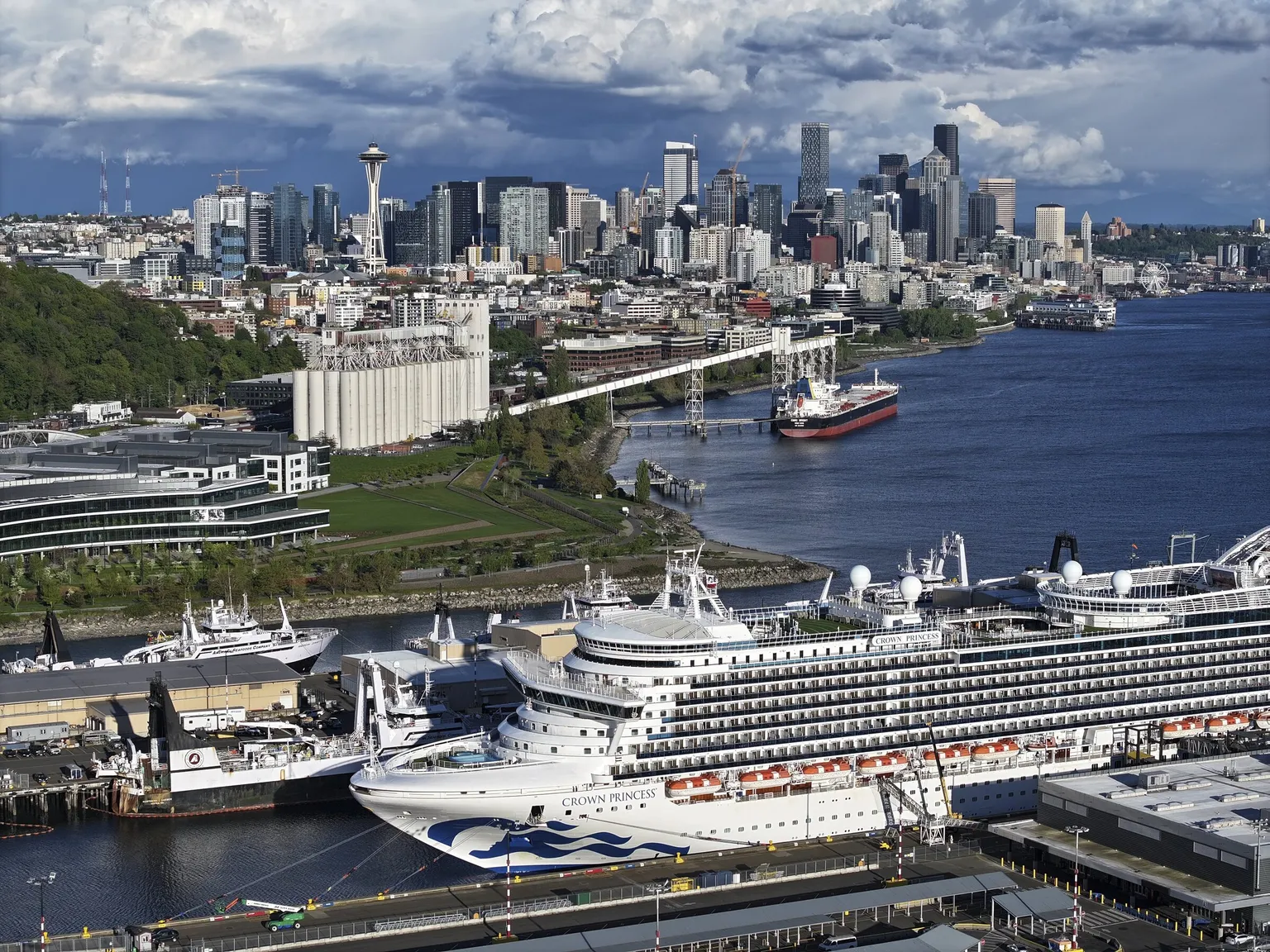Thanks to the Seattle Port Commission’s leadership, every cruise ship that docks in Elliott Bay must power down their smoke-billowing engines and plug into shoreside electricity by 2027.
The new requirement is no idle decree. The tens of millions of dollars the port spent to bring terminal berths the voltage necessary was a clear signal to the cruise industry — which brought nearly 300 vessels to Seattle in 2023 — that the port means business on reducing emissions. Those investments made the port commission’s unanimous decision earlier this month possible.
A similar strategy should extend across the port’s entire operations for the good of public health in Puget Sound — and as a sustainability leader in the global maritime industry.
The next challenge for the port is a parallel plugging-in of the container ships and other vessels that call on the Northwest Seaport Alliance’s Seattle and Tacoma ports. A total of 14,000 metric tons of carbon dioxide emissions from cargo ships could be removed from the atmosphere if its berths — which welcomed nearly 1,700 cargo vessel visits in 2023 — were electrified while ships were loaded and unloaded. Those emissions have an outsized impact on the port’s surrounding neighborhoods. The 12% or so of Americans who live near seaports suffer higher rates of respiratory and cardiovascular diseases, according to the federal Department of Energy.
The port and the alliance are off to a good start with the electrification of two berths at Terminal 5 near West Seattle. Located west of the Duwamish Waterway, its two berths can host the largest container ships in the world, thanks to more than $300 million in recent infrastructure improvements. Commissioners of both the Ports of Seattle and Tacoma, which comprise the Alliance, parlayed enhancing Trans-Pacific trade with achieving climate goals — and the result is good for the health of the region and its residents. This fall, an improved Husky Terminal at the Port of Tacoma will also open three electrified berths.
Much more work remains. Idling trucks packing port cargo and the container ships themselves — which have yet to find a climate-friendly replacement for bunker fuel — continue to hurl harmful emissions into the atmosphere. But the port commissioners have notched early victories toward proven and meaningful reductions.
Leaders in both the public and private sectors often peddle timelines and news releases that talk up distant climate goals. The port commission has refreshingly demonstrated a walking-the-walk approach with its shore power initiatives.
Keep leading the charge. Cleaner air in Puget Sound and reduced carbon emissions are worth fighting for.
